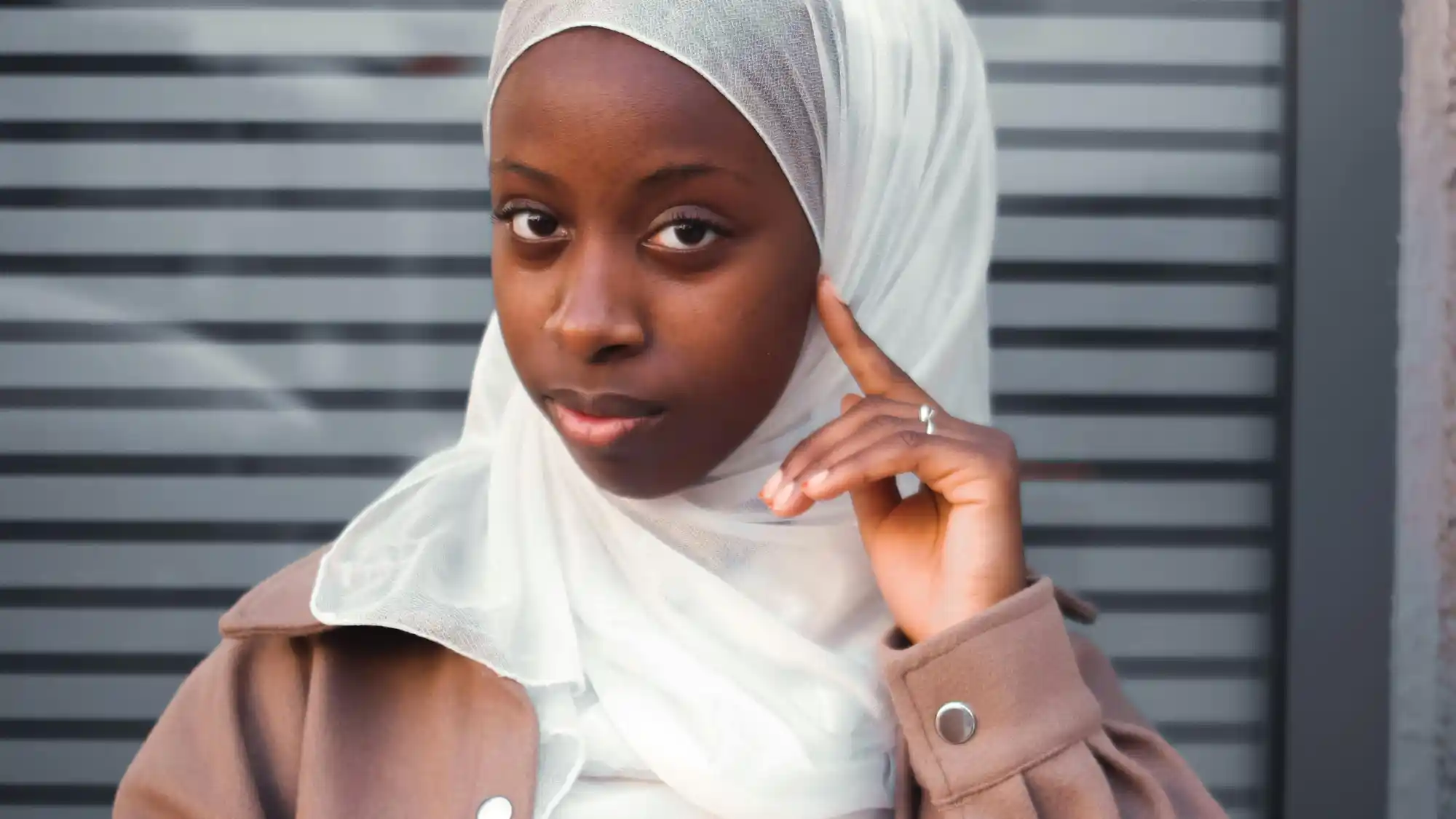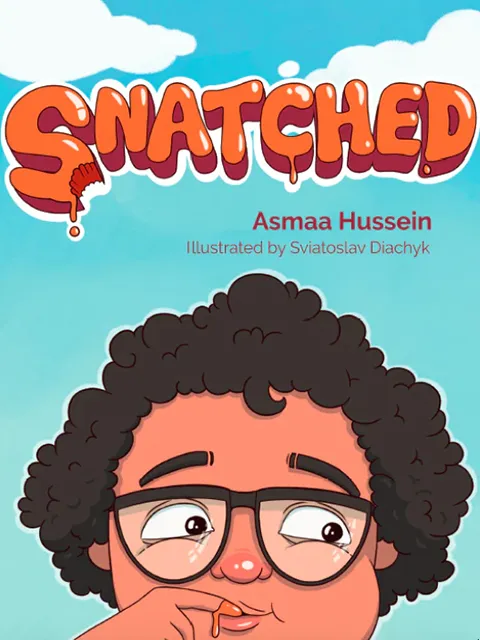
Free Shipping On Orders Above $75

Empowering Muslim daughters starts with challenging the belief that women are inadequate leaders. For a large period of my life, I was also led to believe that women were inherently inadequate leaders. That’s because I also thought that women are overly emotional with fewer logical thinking skills than men.
In various Muslim organizations where I worked, it was often implied that women were the workers and volunteers, while men made every important decision. Despite my qualifications, I struggled with empowering myself and all of my personal experience led me to understand the importance of empowering Muslim daughters.
I doubted the worth of my own voice, thinking:
"Am I really just too emotional to make decisions?"
And for fear of ridicule: "Maybe it is better for me to never speak." I believe it is necessary to understand how building self-confidence in Muslim girls and supporting Muslim women in leadership can help our daughters trust their voices.
No matter how qualified I was for a position or how excellent my work was, I distrusted my own abilities. I let these nagging doubts convince me that my voice was unneeded and irrelevant. And that the notion of Muslim women in leadership roles is nothing but a fascinating idea.
I see in the eyes of women and girls so much passion and willingness to contribute to the betterment of their community, and yet their voices are sometimes not welcomed.
It’s only a matter of time until those girls become tired of the dismissive attitudes they’re exposed to in their own communities and move on to other places that will accept and value their abilities.

One of the ways I finally learned the importance of empowering Muslim women and the fact that my voice was valuable was through reading one woman’s voice that was very clearly recorded in the Quran: Bilqees, the Queen of Sheba.
As children, many of us learned her story within the larger narrative of Prophet Sulaiman. The story begins with Sulaiman (as) and his exchange with the hoopoe that brought news of a nation led by a Queen who all worshiped the sun. Sulaiman (as) sends a letter to Bilqees, asking her nation to accept the Oneness of and submission to One Go.
In response to reading this letter, she says:
"O chiefs! Advise me in (this) case of mine. I decide no case till you are present with me.") meaning, `until you come together and offer me your advice. They said: "We have great strength, and great ability for war...") They reminded her of their great numbers, preparedness and strength, then they referred the matter to her and said: but it is for you to command; so think over what you will command.) meaning, `we have the power and strength, if you want to go to him and fight him.' The matter is yours to decide, so instruct us as you see fit and we will obey. Ibn `Abbas said: "Bilqis said: Verily, kings, when they enter a town, they destroy it and make the most honorable amongst its people the lowest.) And Allah said: And thus they do. ) Then she resorted to peaceful means, seeking a truce and trying to placate Sulaiman, and said: But verily, I am going to send him a present, and see with what the messengers return.) meaning, `I will send him a gift befitting for one of his status, and will wait and see what his response will be. Perhaps he will accept that and leave us alone, or he will impose a tax which we can pay him every year, so that he will not fight us and wage war against us.' Qatadah said: "May Allah have mercy on her and be pleased with her -- how wise she was as a Muslim and (before that) as an idolator! She understood how gift-giving has a good effect on people." (27:32-35).
In these verses I hear a woman’s voice from many civilizations ago; a voice that is strong and unwavering, yet open and inviting. This woman is a great example of Muslim women in leadership as she asks for the advice of others whom she trusts. But at the end, she also trusts her own voice and decision showing that building self-confidence in Muslim girls is vital.
She sends Prophet Sulaiman a gift instead of instigating a war. Here is a woman concerned for the well-being of her people and land such that she did not want to start unnecessary bloodshed. (Hey, doesn’t that seem like a novel idea?)
The beautiful story continues and eventually, the Queen comes to see the truth, accepting the Oneness of Allah and submitting to Him. She demonstrated a level of wisdom and foresight that would be admirable in any person – male or female. She brought to the table a skill set that set her apart from many other leaders (both past and present).
Most importantly of all, her power and wisdom did not lead her to become an arrogant leader. Rather, they led her to be open to accepting the truth when it was clearly presented to her.
But we don’t include this point of view when teaching our children this story. We teach them about the famous hoopoe and Bilqees’ magnificent throne and the jinn who brought it to Sulaiman (as) in less than the blink of an eye (and we must teach these aspects of the story because they are miracles and examples for the believers).
But we can’t teach them to the exclusion of the other lessons mentioned above, that building self-confidence and being open to others' opinions is important and so is believing in themselves to make decisions as a leader.

As believers, we are required to continuously self-evaluate, to examine our shortcomings and our negative inclinations, and correct ourselves. But we cannot allow that self-evaluation to become paralyzing self-criticism.
It took me a long time to understand and accept that I had a legitimate voice and so does my daughter now. So, we must be empowering Muslim daughters by letting them know and understand that they have unique abilities that they should be putting to use, that they are intelligent enough to trust themselves and trust what they feel and what they need to make decisions for themselves moving forward in their lives.
Think of girls as women, just tinier versions. If they don’t trust their own voices, their own intellect, their own instincts and emotions, then their voices will be replaced by someone else’s voice.
They will grow to be the women who allow peers to speak for them, fashion to speak for them, politicians to speak for them, and social media to speak for them.
So, trust your daughter’s voice. Don’t silence it. When she has an opinion, consider it a valid opinion to be examined closely and seriously.
When she decides that she wants to pursue a project or goal, don’t tell her – you won’t be able to do it. Let her do it. Help her take on responsibilities and projects that will increase her skill set and contribute to her community because this is what is required for building self-confidence in Muslim girls.
Don’t ever tell her to be silent about what she feels or needs. Even though not every emotion or “need” should be indulged, the solution is never to ask her to change what she feels.
You are asking for the impossible, and it could lead to a lifetime of her muting her own needs and downplaying her abilities. Instead, communicate openly about finding a positive and constructive outlet for these emotions and needs.
Help your daughter trust her voice. Even if she doesn’t want to lead organizations or companies or teams of people, she at least needs to be the leader of her own life and be among those Muslim women in leadership who confidently make decisions for themselves.
Bilqees is just one example of a Muslim woman in leadership who trusted the strength and wisdom of her voice, and who made a permanent impact on how we understand the value of women’s voices.
Islamic history is rife with examples of women like her. And the future can be rich with transformative women’s voices, too…your daughter can be one of them. So, take action today and be the reason for our empowering Muslim daughters today so they can be excellent leaders in the future.

.webp)

$
12.99
12.99
12.99

£
10.49
12.99
12.99


12.99
12.99
12.99
Best Seller
October 16, 2025
Best Seller
Family
Values

.webp)

$
12.99
12.99
12.99

£
10.49
12.99
12.99


12.99
12.99
12.99
Best Seller
November 25, 2025
Adventure
Values

.webp)

$
12.99
12.99
12.99

£
10.49
12.99
12.99


12.99
12.99
12.99
Best Seller
November 25, 2025
Adventure
Values

.webp)

$
12.99
12.99
12.99

£
10.49
12.99
12.99


12.99
12.99
12.99
Best Seller
November 25, 2025
Family
Values

Sign up today and get 10% off your first order!
Use this discount code at checkout: TENOFF